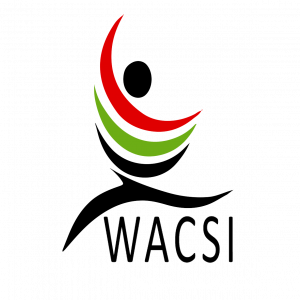The existence of civil society organizations in Africa continues to be threatened by dwindling financial resources from Western donors. As a result, the financial sustainability of civic space has become a topical issue in international development.
In response, several CSOs on the African continent have started exploring non-traditional measures to generate financial resources for sustaining operations and social impact. These measures are not well known, however, beyond the borders of their respective countries. For that reason, the West Africa Civil Society Institute (WACSI), in partnership with Innovation for Change (I4C) – Hub Afrique, organized in Ghana last November a Shared Learning Convening on Alternative Funding Models for civil society. The convening attracted civil society activists and organizations from Africa, Latin America and Europe to share strategies, models, experiences and lessons learned from the implementation of non-traditional approaches to generating financial resources.
The overall objective of the shared learning convening was to provide a platform for thirty (30) civil society activists to share their experiences with non-traditional responses to resourcing their initiatives and organizations. The workshop provided a practical platform for CSOs to better understand the mechanisms that have been utilized by other organizations to generate financial resources.
Participants were given the opportunity to present their various strategies and methods as well as an overview of the state of the funding landscape in their various countries. Hear from two of them below.
Watch participants in the convening – Adnane Addioui from Morocco and Thabiso Mashaba from Botswana – talk about their experiences with building the field of social enterprise and their key take-aways from the convening.
Some of the key lessons learned:
Developing Resilience and Financial Sustainability
- Civil society actors have to re-orient their mindsets toward financial sustainability by integrating business models in their operations, monetizing aspects of their expertise and building capacity to seek out resources from their domestic constituencies;
- Civil society actors must adhere and promote internal accountability and transparency not only to sustain their relationships with donors but also with their communities and peers;
- Civil society actors must invest in talent management and skills building for their staff in governance and leadership, multi-sectoral engagement, financial sustainability, negotiation, social innovation, mobilizing support and public policy;
- Civil society actors should plan for sustainability as a core strategic objective.
Business Models and Financial Resource Generation
- Operationalizing a business model approach to operations will enable CSOs to become more financially sustainable and to transition from being solely grant recipients to becoming generators of financial resources;
- To institute and operationalize a revenue generation model within a CSO, staff and board members must all agree and commit to the process;
- A practical internal income generation for CSOs, including social justice organizations, is to leverage their service niche and monetize their expertise by providing services and using their facilities as sources of income; and
- Evolving global mechanisms to generate funding within the development landscape that CSOs can tap into include: blended finance, social or green bonds, impact investment, and social impact bonds.
The convening concluded with a clear call to action for the sector. It has become apparent that there is a pressing need for civil society to re-think its business models, to think more strategically about financial models and to adopt strategies that will help the sector maintain its independence even while pursuing sustainability. Nevertheless, in their pursuit of resilience and sustainability, participants were cautioned to avoid becoming driven solely by their need to survive rather than by the causes they pursue for the benefit of African communities.
Photo by Markus Spiske on Unsplash

